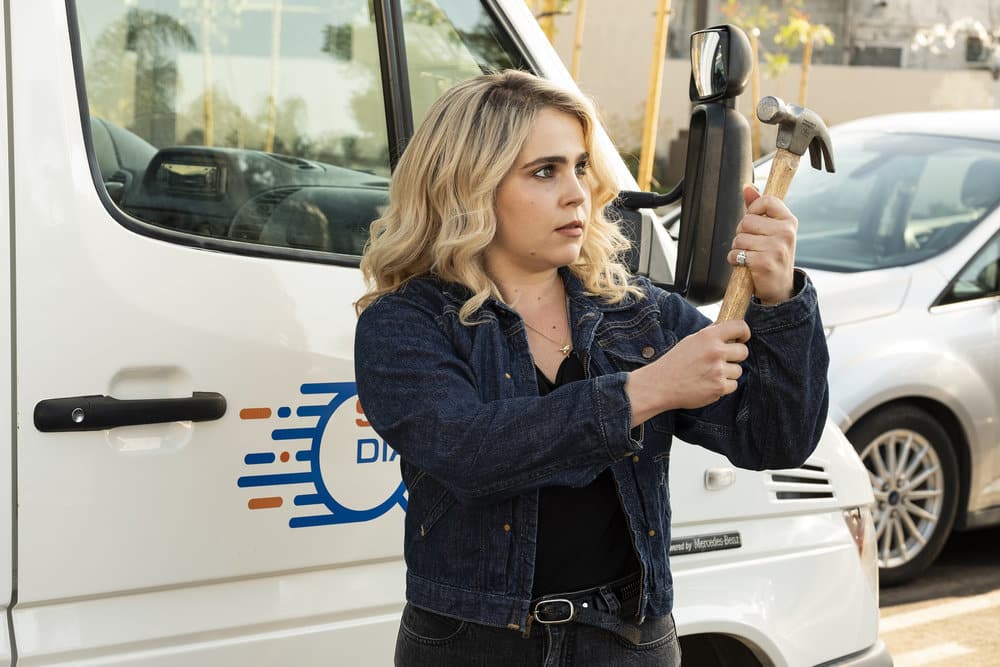Read also:
How to Watch FX Live Without CableHow To Watch AMC Without CableHow to Watch ABC Without CableHow to Watch Paramount Network Without CableThe second season of NBC’s Breaking Bad-with-moms show disappointingly treads water, keeping its three leads running in place while feigning change.
In the first season of NBC’s answer to the question “what if Breaking Bad was about moms?”, much was made of the concept of flipping your game – of constantly pivoting to new strategies, of staying eight steps ahead of those who might do you harm. That’s how crime boss and gangster Rio (Manny Montana) stayed out of prison for so long, and it’s why, at season one’s cliffhanger ending, he’s paid a violent visit to antiheroine Beth (Christina Hendricks), the one who tried to put him away.
Rio is constantly turning the tides on Beth, her sister Annie (Mae Whitman), and friend Ruby (Retta), forcing the three women to pivot along with him, keeping their heads above water for as long as they can, and maybe making a little cash on the side. But in all this talk of flipping the game and keeping things fresh, Good Girls’ second season is surprisingly stagnant. Like its main characters, Good Girls tries to flip its game, but only succeeds in spinning its wheels.
It’s easy to imagine that the second season was originally conceived as the second half of the first season. Many of the same problems of the first season are here, and not going anywhere fast: Ruby and Beth are navigating changed relationships with their husbands, now that Stan and Dean (Reno Wilson and Matthew Lillard) are in on their criminal secrets. Annie is still entangled with her ex in ways that put a strain on her relationship with her daughter. And Rio is still here, still popping up every episode to make some new demand of the girls, to rope them – and Beth especially – further into his empire of, uh, y’know. Crime.*
No matter how much we expound on any of these issues, the core dynamics never really change. Ruby still feels guilty for putting Stan in danger. Beth is still inexplicably power-hungry, a move which the show halfheartedly tries to pass off as “feminism.” And as Rio’s game keeps flipping, the MacGuffin-like specificities of the crime changes, but it never really has a different texture than did the original job of washing counterfeit bills. The whole show just feels like a rehash of itself every episode, with one or two shock-value developments thrown in to remind us that the FBI is hot on our heroines’ trail.
Good Girls tries to flip its game, but only succeeds in spinning its wheels.
Perhaps it isn’t sameness, but vaguery, that lies at the root of why season two seems so bland. Not only does Good Girls not really know what kind of crime it’s about, but it never seems to know what tone it wants to take when talking about it. Leslie (David Hornsby), the opportunistic grocery-store manager, provides a perfect microcosm of this. Leslie’s characterization is constantly riding a thin line between pathetic lonely-boy comedic relief and genuine sociopath. Early on, when he manipulates one-time extortionist Mary Pat (Allison Tolman) into being his fiancee against her will, I’m not sure whether I’m supposed to be horrified at the depths of his depravity or laugh at the desperate attempt to find a partner. The show’s attempts at dark humor are always just a little too dark to see the humor.

That’s a shame, too, because Good Girls’ cast continues to kill it, especially in the lighter moments. Retta gets some much-needed time in the spotlight this season (there’s a certain scene in a Starbucks that had me laughing out loud), and Lillard gets to sink his teeth into Dean’s clueless-dad aesthetic in a way that had me groaning and mortified in the best way. It’s a shame the scripts aren’t quite up to snuff, because incredible things happen when you put
Sometimes flipping your game isn’t enough. It’s important to remember that some things take commitment, and time, to get done right. You can’t just keep pivoting to the next thing and expect everything to turn out okay. That’s the lesson our protagonists start to learn this season, and that’s the lesson the team behind Good Girls needs to learn, too. If show creator Jenna Bans committed more to the feminist angle, or the comedy, or the universe’s suburban criminal underbelly, this show could really be something. But as is? Maybe flip your TV channel instead.
*Also, can we just take a moment: we’re still doing the thing where every Latinx character is a criminal? Except we’re not even trying to specify what kind of criminal anymore. Y’know. He just